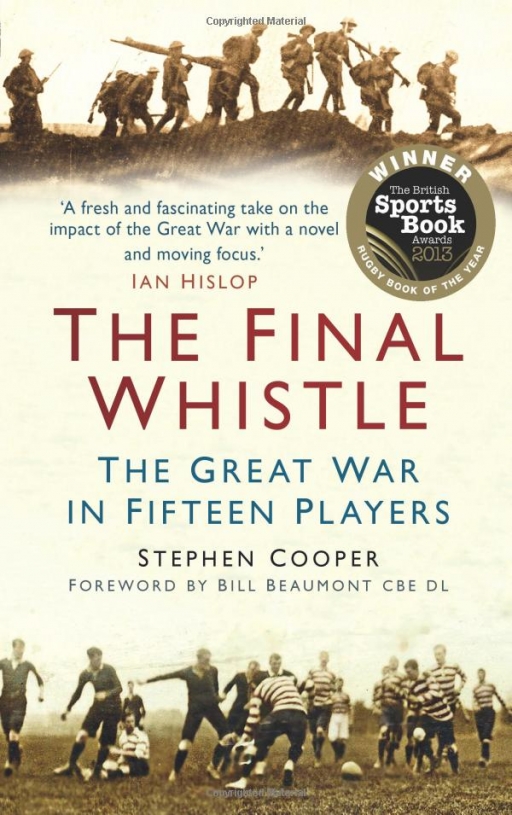The role of sportsmen in the First World War will be discussed at talks being held as part of the London Sports Writing Festival, starting on October 23rd 2014 at Lord’s Cricket Ground.
October 23rd: Cricket and War
Football is often associated with the First World War, not least because of the informal games reported to have been played during the Christmas truce. But cricketers also fought.
Dan Waddell, the author of Field of Shadows: The English Cricket Tour of Nazi Germany will be in discussion with Andrew Renshaw, the editor of Wisden on the Great War: the Lives of Cricket’s Fallen 1914-1918.
By the time the conflict was over, the cricketers’ almanack Wisden had carried almost 1,800 obituaries. All the obituaries have been updated in Wisden on the Great War with new information about the subjects’ lives and deaths, their families and memorials, and ordered by the year of death. The book also lists for the first time the 407 first-class cricketers who were decorated for gallantry, of whom 381 survived.
October 25th: ‘The Final Whistle: The Great War in Fifteen Players’
Stephen Cooper opens Saturday’s festival events with his account of the place that rugby played in the First World War. His book, The Final Whistle: The Great War in Fifteen Players, won the Rugby Book of the Year 2013.
The story is told through the prism of 15 men, who played for Rossyln Park Rugby Club in London. Not one of them survived. They came from Britain, Australia, Ceylon (now Sri Lanka) and South Africa to fight in every theatre and service, among them a poet, playwright and perfumer. Some were decorated and died heroically; others fought and fell quietly. Together their stories paint a portrait in miniature of the entire war.
Centenary News interviewed author Stephen Cooper in 2013. You can read it here.
Also on October 25th: Children’s event with author Tom Palmer
Award winning children’s author Tom Palmer visits Lord’s with his new book ‘Over the Line’. Jack Cock was part of a group of top-flight English footballers who gave up playing football in 1915 to fight on the Western Front. Not only was Jack awarded medals for gallantry, not only did he return from the war to be the subject of a record transfer from Huddersfield to Chelsea. He also scored England’s first peacetime goal within 30 seconds of his international debut.
For booking information, visit the London Sports Writing Festival website here.
Information & images supplied by London Sports Writing Festival
Posted by: Peter Alhadeff, Centenary News
